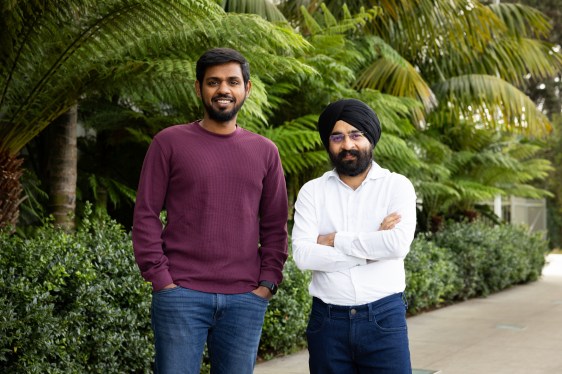Taranjeet Singh has launched six companies, with some failing and others seeing varying degrees of success. His seventh startup, Mem0, could be his defining one. The startup begins with the premise that large language models cannot remember past interactions the way humans do. If two people are chatting and the connection drops, they can resume the conversation. AI models, by contrast, forget everything and start from scratch.
Mem0 fixes that. Singh calls it a memory passport, where your AI memory travels with you across apps and agents, just like email or logins do today. The Y Combinator-backed startup, launched in January 2024, has raised twenty-four million dollars. This includes three point nine million in previously unannounced seed funding and a twenty million dollar Series A round.
AI-focused early-stage fund Basis Set Ventures led the Series A, with participation from existing investors Kindred Ventures and Y Combinator, as well as new backers including Peak XV Partners and the GitHub Fund. Notable angel investors include Dharmesh Shah of HubSpot, Scott Belsky formerly of Adobe, Olivier Pomel of Datadog, Thomas Dohmke formerly of GitHub, Paul Copplestone of Supabase, James Hawkins of PostHog, Lukas Biewald of Weights & Biases, Brian Balfour of Reforge, Philip Rathle of Neo4j, and Jennifer Taylor, former president of Plaid.
Having several leaders who helped shape the modern software ecosystem bet on Mem0, pronounced “mem zero”, underscores its promise, and the traction from the four-person team backs it up. So far, the open source API, which claims to be the most widely adopted memory framework for AI developers, has surpassed forty-one thousand GitHub stars and recorded over thirteen million Python package downloads. In the first quarter of 2025, Mem0 processed thirty-five million API calls. By the third quarter, that number jumped to one hundred eighty-six million, growing roughly thirty percent month over month.
Beyond open source adoption, more than eighty thousand developers have signed up for its cloud service. Mem0’s cloud API now handles more memory operations than any other provider and serves as the exclusive memory provider for AWS’s new Agent SDK.
In early 2023, Singh was still in Bangalore, India. He started his career as a software engineer at Paytm, one of India’s most valuable startups, before becoming Khatabook’s first growth engineer. He quit in late 2022, just as the ChatGPT wave was about to crest, and built one of the first GPT app stores, which scaled to over a million users.
That experience led him to create Embedchain, an open source project that lets developers index, retrieve, and sync unstructured data. As the project took off, earning more than eight thousand GitHub stars, Singh sent over two hundred cold emails to founders, investors, and engineers in Silicon Valley. He reached out to almost every famous tech entrepreneur you might have heard of and was quite persistent. Some of them responded, and after hearing him out, scheduled him to fly from Bangalore to San Francisco within thirty-six hours.
Once in the United States, Singh reconnected with his longtime friend and now co-founder and CTO, Deshraj Yadav, who had led the AI Platform at Tesla Autopilot. Together, they had previously built EvalAI, an open source Kaggle alternative that grew to one point six thousand GitHub stars. While experimenting with Embedchain, the duo launched a meditation app inspired by Indian yogi Sadhguru. The app went viral in India, but users kept sharing the same feedback: that the app did not remember their meditative journey. So they pivoted from Embedchain to Mem0 to solve that problem.
The idea of memory for AI is not new, but it is quickly becoming a critical battleground. OpenAI, for instance, began testing long-term memory features in ChatGPT in early 2024, and its CEO, Sam Altman, has hinted that persistent memory will be central to OpenAI’s upcoming hardware device. Other AI labs are also launching experimental memory systems for their agents.
Singh argues that while big AI labs are building memory systems, they have little incentive to make them portable or interoperable. He states that memory is becoming one of their key moats now that large language models are getting commoditized. He explains that while consumers can enjoy persistent, personalized experiences in ChatGPT, developers who want to build applications, such as a finance companion that remembers a user’s trading history, need an open, neutral solution like Mem0.
He says they want developers to offer day-one personalization through a shared memory network, comparing it to Plaid for memory. For now, the team is laser-focused on building the best memory product possible. Mem0’s framework lets developers store, retrieve, and evolve user memory across models, applications, and platforms. It is model-agnostic, compatible with OpenAI, Anthropic, or any open source large language model, and integrates directly with frameworks like LangChain and LlamaIndex.
Developers use Mem0 to create applications that grow smarter with every interaction. Examples include therapy bots that recall past conversations, productivity agents that remember personal habits, and AI companions that adapt over time. Customers range from indie developers to enterprise teams building copilots and automation tools.
An investor from Basis Set Ventures said they backed Mem0 from its earliest days, even before Y Combinator, because memory is foundational to the future of AI. They are doubling down as the team continues to tackle one of the hardest and most important infrastructure challenges: enabling AI systems to build lasting, contextual memory.
Other early-stage startups in the memory space include Supermemory, whose founder briefly worked at Mem0, Felicis-backed Letta, and Memories.ai.

